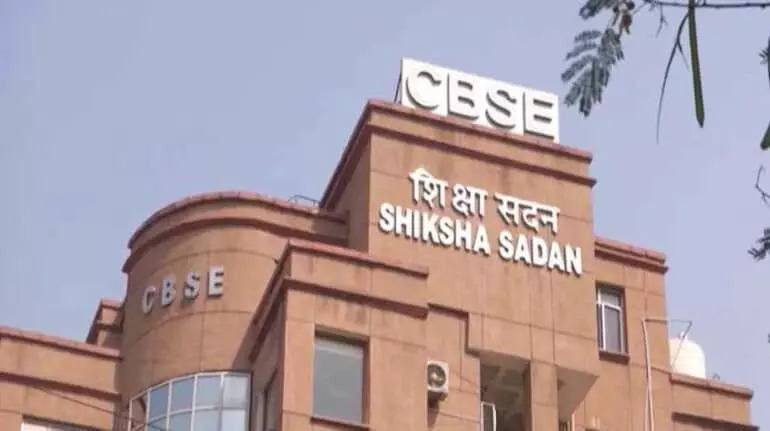CBSE Class 10th board exams twice a year: Opportunity or challenge for students?

The Central Board of Secondary Education (CBSE) has introduced a major reform in its examination system for class 10 students. As per the latest decision of the board, from 2026, CBSE will conduct class 10 board exams twice a year, giving students an additional opportunity to improve their performance.
As per the newly approved draft guidelines, the class 10 board exams will be conducted in two phases. The first phase will be held between February and March, while the second phase is scheduled in May. Both exams will cover the entire syllabus, ensuring a comprehensive assessment of the knowledge and skills of students.
The new exam framework categorises subjects into seven groups: Language 1, Language 2, Elective 1, Elective 2, Elective 3, Regional and Foreign Languages and Rest Subjects.
How and when will the board exams be held twice a year?
As per the new draft guideline, board exams will be conducted twice a year, while practical and internal assessments will be conducted only once a year.
According to the official information, the draft norms will now be put in the public domain and stakeholders can give their feedback by March 9, after which the policy will be finalised. As per the draft norms, the first phase of the exam will be held from February 17 to March 6, while the second phase will be conducted from May 5 to 20.
How can CBSE's new examination system impact students?
As soon as the draft of this new guideline of CBSE was published, a wide discussion started in the academic community regarding its acceptance. According to CBSE’s claim, this system will be beneficial for the students, the burden on them will be reduced and unnecessary obstacles in passing class 10th will almost end.
According to the information published in various reports, some educationists support this system and say that this new structure will provide more flexibility to the students and reduce the pressure caused by the annual examination. Students will get the opportunity to take the exam in both sessions and they can choose the appropriate session according to their preparation.
However, at the same time, discussions are ongoing about how truly beneficial this system will be for students. This examination will be conducted in two phases between February and May, which means that the students will be busy with the examination for about four months of the year. This will double their academic burden as compared to the existing system.
Conducting the examination in two phases will also increase its expenses, which will have to be borne by the students. This can become a big problem for students from economically weaker families. Apart from the examination fee, many other expenses related to the examination can also increase.
Due to the examination being held in two phases in February-March and May, students will have to remain busy in exam preparations for a long time, due to which they may stay away from sports, cultural activities and other co-curricular activities. This can also harm their mental health. Following the publication of CBSE’s draft, discussions regarding these potential effects have already begun among parents and the academic community.
What does CBSE say regarding subject selection, syllabus, exam centers, etc., in the case of two exams?
According to a CBSE official both the exams will be conducted on the full syllabus and candidates will be allotted the same exam centers in both versions. The exam fee for both exams will be increased and collected at the time of applying.
The official said, "Once the subjects are finalised, candidates will not be allowed to change their subjects. However, there is some flexibility in subject selection. If a candidate wishes to modify his/her subject choices, he/she can drop a subject in the first exam (February-March) and choose a different subject in the second exam (May). However, if a candidate completes all the subjects in the first exam, he/she will have to take the same set of subjects when he/she re-appears in the second exam."
Provisional admission in 11th even if not passed
Students who qualify in all five subjects in CBSE Class 10 in the first round will also be declared passed. In this case also, the student will be able to get provisional admission on the 11th. When the student takes the second session exam and qualifies, then only in that situation his/her admission will be considered confirmed. Students who do not qualify in the first exam will be placed in the improvement category and will be eligible for the second round of examination.
No compartmental exam will be held in this system
CBSE has made it clear that under no circumstances will there be any special examination i.e. compartment examination. If a student does not succeed in the first examination or does not succeed in some subjects, till now he will get a chance to appear in the compartment examination in July. But now he is being given the option to appear in the second examination to be held in May.
There are mixed reactions among the academicians and parents regarding this new examination system. While some people are considering it a useful step for the students, some are calling it an increase in exam pressure. However, CBSE believes that this system will provide more opportunities to the students and help them perform better. It will be interesting to see how this new framework impacts students' academic experiences and whether it truly proves to be effective in their best interests. Ultimately, this system should not become a burden for students but should work towards their betterment and holistic development.
